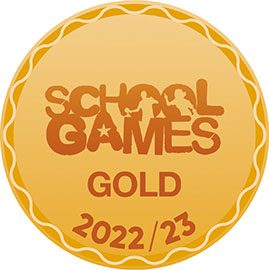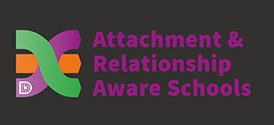Reading
‘Teaching children to become confident and competent readers is surely the most important thing that primary school teachers do; it quite literally changes lives.’- Aidan Chambers
Intent
At Springfield Junior School we want our pupils to foster a love of Reading by listening to and interacting with a variety of literature, non fiction and poetry which has been chosen specifically. We want to build a community of engaged readers who turn to reading for meaning and pleasure. We believe that all pupils should be provided with the necessary life-long skills to ensure that they can read confidently and have a secure understanding. Reading is at the heart of everything that do at Springfield and as a school we want our pupils to use their Reading skills across all areas of the curriculum to support their learning.
Implementation
We know that books and stories provide our children with the background knowledge and vocabulary they need in order to access the curriculum. Cognitive Science tells us that the more we know about something the more we are able to understand new information related to that topic. Without foundational knowledge, we cannot reason or problem-solve. These are skills which are extremely important to our children, to ensure they are able to compete nationally with their peers.
Our reading offer at Springfield is delivered through three key areas;
• Teaching Reading; This is delivered through high-quality phonic lessons and the use of engaging and stimulating reading books which are closely matched to the children’s phonic knowledge. At Springfield we use SoundsWrite Phonics Programme, which is a proven successful scheme to deliver high quality phonics to our learners, also incorporating excellent CPD materials. The majority of staff are trained to deliver this programme. This builds to the development of reading fluency and comprehension. Reading is explicitly taught through four day whole-class reading lessons where children are taught to deepen their understanding and interrogate high quality and specially selected texts. There are also opportunities for regular one-to-one reading sessions where AFL takes place to monitor children’s next steps in their Reading.
• Cross-curricular Reading within the wider curriculum
• Reading for pleasure
Our school library is well stocked with high-quality texts. Leaders spend time ensuring that the library provides access to a wide and varied range of literature, including classics such as The Secret Garden. We know this is crucial to informing and shaping our children’s knowledge and understanding of language and we want to ensure that our children are exposed to high order language when reading.
All children are provided with a levelled Reading book. We ensure that texts are phonetically decodable for pupils and matched to their reading age. We predominantly use the Oxford Reading Tree scheme at Springfield. Children also take a library book home at least once a week, to read alone, or with a parent/ guardian. We see this as a very important part of our Reading offer as it encourages both parental engagement and reading for pleasure.
Another important aspect of our Reading for Pleasure offer is the daily class novel and timetabled Reading time every afternoon. We believe that sharing books and reading aloud is vital. It enables all learners to become part of our community of readers whilst being exposed to language and stories they may not be able to access independently. We also recognise that reading aloud to children provides them with an excellent model of reading skills such as expression and how to make a text come alive.
We know that most of our children see us as their prime role models when it comes to Reading. This is not something the majority see readily in the home. It is therefore up to staff to make recommendations, introduce new authors, genres and broaden the range of what the children would normally read. Children are actively encouraged to talk to staff, and each other, about what they are currently reading. Recommendations are key to developing literary tastes and preferences; the foundations of Reading for Pleasure.
At Springfield, we have reading ambassadors and librarians. These are enthusiastic readers themselves who lead by example and promote a reading culture within school; listening to children read, recommending books and taking responsibility for the running of the school library. We also encourage children to complete our Reading scrapbooks each class to share their Reading enjoyment and recommendations with their peers.
We expect children to read at home and reward this through the READING ROCKSTARS award. Each class with the highest percentage of reads each week is awarded with the Reading Owl for the week. We also have the Reading Mystery Box in school and each week one lucky child from the winning class has a go at choosing the correct key to unlock the box. Certificates are also handed out each term to those children who have regularly read at home.
Impact
The staff and children believe that Reading is fundamental to their lives. They understand the importance that Reading plays across all learning and the essential life-skill that it is. Children are passionate readers and are increasingly turning to reading for meaning and pleasure. Reading is at the heart of everything we do at Springfield and we all recognise the importance of being confident, fluent readers.
As our Reading culture embeds we will see the majority of children read at home at least five times a week and outcomes of attainment and progress improving to match national and enabling our children to compete with their peers in future lives. To make this happen for children who require support, they are targeted as priority readers in class and are listened to daily by an adult.
Children are exposed to quality texts through their Reading lessons and through the use of the library, this also improves their growing vocabulary and their written word too.
Evidence
· Progress in Phonics achievement is evident in all year groups with the aim to have children in Year 3 achieving their phonics test by Christmas.
Phonics attainment is tracked regularly and children are given specific teaching regarding their gaps in phonetic understanding.
· Progress in Reading Attainment in Non SEND children across the school is predicted to improve towards national levels.
READING CULTURE
Springfield is becoming a true Reading school where Reading is at the heart of everything we do. Children are increasingly discussing books that they have enjoyed with each other and the culture is changing into a school which embraces the importance and the love of Reading.
How Can I Help My Child At Home
Paired reading
Writing
“English has a pre-eminent place in education and in society. A high-quality education in English will teach pupils to speak and write fluently so that they can communicate their ideas and emotions to others and through their reading and listening, other can communicate with them” English Purpose of Study, National Curriculum 2014, DFE
Intent
At Springfield Junior School we want to deliver an engaging and exciting curriculum to inspire pupils to write. We believe that all pupils should be able to confidently communicate their knowledge, ideas and emotions through their writing and we aim to foster a love of language, creativity and imagination. We aim to create a culture where pupils love to write and take pride in their work.
We believe that pupils should be able to write clearly, accurately and coherently and have the lifelong skills grammar, punctuation and composition that will be essential for their future. Pupils should be confident in writing skills such as: planning, drafting, proof-reading and editing to further improve their work. We encourage pupils to be imaginative and creative, using ideas drawn from their reading. We wish our pupils to be exposed to a wide range of genres and vocabulary to further improve their knowledge and understanding of the written word.
Implementation
At Springfield we use the Talk For Writing approach. Our curriculum map ensures that all children have the opportunity to write a wide range of genres and for different purposes. We teach writing as whole class lessons, so that all children have access to the age-related skills and knowledge contained in the National Curriculum. Grammar is taught within these sessions (sometimes discreetly), however links are made with the model text wherever possible. The Talk For Writing approach is planned and taught so that children follow a consistent process in all year groups. Vocabulary is taught explicitly through this approach and children are exposed to quality model texts and vocabulary in each unit of work. At the beginning and end of each unit of work, children write an extended piece of writing. The amount of writing produced and expected increases as children move into upper key stage two.
Springfield Junior School follow the No Nonsense Spelling scheme and use this for the structure of their spelling teaching. Parents are informed of the spelling patterns that are being covered in class and are encouraged to support their children at home through spelling homework. A spelling lesson takes place daily and staff have high expectations of pupils to apply these patterns in their writing.
Handwriting is timetabled to be taught at least once per week and staff and children recognise the importance of good presentation and handwriting in all of their written work. It is an integral part of an lesson and is reinforced daily. Pupils are expected to use joined, legible handwriting.
At Springfield Junior we also recognise the importance of writing spanning across all of the curriculum. We have identified ‘cross-curricular’ writing opportunities in each year group where pupils are given the opportunity to further apply their writing skills for a purpose.
Impact
Writing remains a whole school focus for improvement. Attainment in Writing is improving, especially at greater depth. Our evaluation of provision and tweaks to the opportunities for writing in the upper key stage have allowed for increased practice incorporating cross curricular and extended writes to facilitate the flair required by the end of key stage.
Pupils are becoming increasingly familiar with the Talk for Writing approach to learning and are more effective and learning and innovating from the model texts covered. Pupils are exposed to quality model texts and vocabulary which continues to develop their use of language and sentence patterns in their own written work.
Pupils understand the high expectation regarding presentation in all of their written work and are familiar with the ‘writing process’ of planning, drafting, editing and improving.









